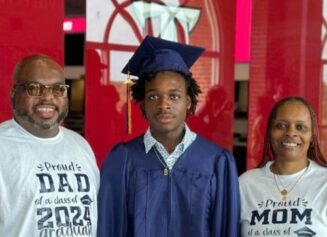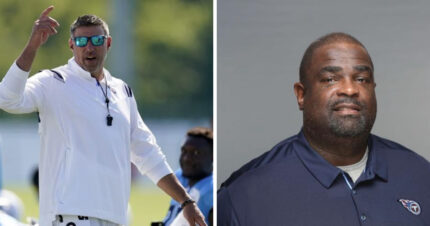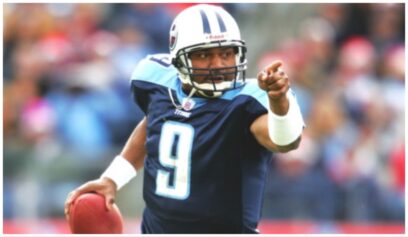When President Donald Trump officially proclaimed September 20 through September 26, 2020, as National Historically Black Colleges and Universities Week and further proclaimed September 21, 2020, as National HBCU Colors Day, it was the first time his government acknowledged the importance of celebrating the achievements of HBCUs and their students.
In doing so, the government also pledged continuing support to the nearly 300,000 individuals currently pursuing their dreams at HBCUs throughout the United States.
I call upon educators, public officials, professional organizations, corporations, and all Americans to proudly don institutional colors and observe this week and day with appropriate programs, ceremonies, and activities that acknowledge the countless contributions these institutions and their alumni have made to our country
Donnie got it right with this one. He blazed it like the fourth of July. Speaking of the 4th of July and before that legendary HBCU pioneers, Independence Day is usually a celebration. Fireworks, cookouts, the beach and family. That’s what the day is about.
But for many sports fans, that is also a day of great sadness, as that’s the day that we lost the great Steve “Air” McNair.
WATCH- Steve “Air” McNair 10 Year Anniversary Tribute
[jwplayer kN3FF15M-Stkj2wzN]
The pride of Mount Olive, Mississippi, McNair was an All-State player in football and named a Super Prep Magazine All American. Many schools were recruiting him, but like many Black quarterbacks, he was told he would switch positions if he accepted their offer. This was the case at the University of Florida at Florida State, where he was recruited to play running back and defensive back, respectively. But McNair was a leader, and the man under center needed to be a leader; someone who was tough, never crumbled under pressure and could elevate others through his passion and play.
That was Steve McNair, and he was a quarterback in every sense of the word.
So he stood firm in his refusal to give up the position and decided to stay in Mississippi and play at Alcorn State, an HBCU school in the SWAC, and that’s where his legend began.
McNair’s college career began on the bench in the team’s first game against Grambling. But that was only temporary as he was inserted into the game and led the Braves to a come back win over the Tigers, and he never looked back from there.
His college career was nothing but dominance. In his sophomore year he threw for 3,541 yards and 29 touchdowns while also rushing for 10 more scores. His junior year he threw for over 3,000 yards and 30 touchdowns, and was named First-Team All-SWAC for the third year in a row.
But in his senior year, McNair made eyes turn to Lorman, Mississippi.

Photo- Sports Illustrated
That year, 1994, McNair put together a collegiate season for the record books. He went off, amassing 5,799 total yards and 57 TDs, en route to breaking college football’s record for all-time total offense. He was named an All-American and got serious consideration in the Heisman race, eventually finishing in third behind Colorado’s Rashaan Salaam and Penn State’s Ki-Jana Carter. McNair also won the Walter Payton Award, given to the top player in 1-AA (now the Football Championship Subdivision).
He would finish his career at Alcorn State in style. 14,496 yards passing with 119 TDs and 2,327 yards rushing with 33 TDs. His passing total and 16,283 total yards both remain FCS career records. In DI overall, he ranked first in total yards until 2004, when he was passed by Hawaii’s Tommy Chang (16,910 total yards). As of today, he sits in third place behind Case Keenum (20,114) and Chang.
On To The NFL
His performance during his senior year drew the attention of the Houston Oilers, who selected McNair with the third pick in the 1995 NFL Draft, making him the highest selected African-American QB in history at the time. Considered a work in progress, McNair sat behind Chris Chandler for two years. In 1997, the team moved to Tennessee, and when they finally became the Titans in 1999, McNair was named as the starting QB. He would get injured, something that was consistent during his NFL career, but he would return after five games and would help the team finish with a 13-3 record that season.
That season will always be memorable to NFL fans for two reasons- the “Music City Miracle” over the Bills in the AFC Wildcard game, and Super Bowl XXXIV against the St. Louis Rams. Ironically, Kevin Dyson was involved in the key play in both games, the receiver scoring the winning TD against the Bills and then also coming up a yard short of the end zone in that Super Bowl, which would have given the Titans a shot at tying the game with no time remaining.

Photo Credit- YouTube
But what most forget about the Super Bowl is the play from McNair with :22 seconds remaining in the game, where he scrambled for his life behind the line of scrimmage, escaped two tacklers, kept his balance as he was being tripped, and threw an off balance pass to Dyson with 11 seconds remaining to put them at the 11-yard line with :05 seconds left. That play epitomized his career- refusing to quit, on-point passes despite being off balance, and always calm under pressure when his team needed him to make a play.
McNair would have a 13 year NFL career, amassing 31,304 yards passing with 174 passing TDs and 3,500 yards rushing with 37 rushing TDs. He became the youngest player in NFL history to pass for 20,000 yards and rush for 3,000 yards. In 2003, he was named the League’s co-MVP with Peyton Manning, a year in which he threw for 3,215 yards and 24 TDs.
“When Jeff announced that he was the MVP of the League, everybody stood up and there was a standing ‘O’ for about a good 10, 15 minutes.” said teammate Eddie George.
That’s how much respect players had for McNair.
He would retire in 2007 after a final two seasons with the Ravens, injuries eventually wearing him down.
Two years later, in the afternoon of July 4th, 2009, we all were crushed when the news of his death broke.
I remember being devastated. I had never actually met McNair, but there was something about him that drew people to him. You could see what he meant to people as images of fans crying began to circulate of people lining up in front of the condo where he was shot while he slept, at the age of 36, by his 20-year-old mistress, Sahel “Jenni” Kazemi, in a murder suicide.
The McNair Impact
McNair was at the top of my interview list.
I always wanted to tell his story because he was more than just an athlete to me. He represented something special. He ascent to the NFL was an inspirational story, especially coming from an HBCU program. He was another special talent that HBCU football programs produced regularly in the 70s and 80s. Players like Walter Payton, Jerry Rice and Shannon Sharpe. He almost became the second Black quarterback, and second Black HBCU quarterback, to win a Super Bowl after Doug Williams did it in 1988. Yet despite not winning a ring, McNair’s shine never dimmed.
McNair was an athlete that the culture held close to the heart. He was similar to Allen Iverson- players from small towns who became folk heroes. Men who played through almost every injury imaginable, fans loving them for their heart, performance and personality. When they had the ball in their hands, something special could happen. When they weren’t playing, fans would flock for a chance to see them.
To me, his legacy puts him in the fold of Randall Cunningham, a Black QB who young kids of color could look up to and emulate on fields across the country. Spinning, juking and throwing to receivers on the run. He was the original model for Russell Wilson, Patrick Mahomes, Jameis Winston a silent assassin who could hurt you with his playmaking ability. And despite not having Michael Vick type afterburners for wheels, he would somehow elude pursuing defenders and gain the crucial yards his team needed.
This coming September 15th, McNair, along with teammate Eddie George, will have their jerseys retired by the Titans, a deserving honor for both men. I can confidently state that the stadium will be packed that day, roaring loudly as the no. 9 is forever retired by the team that drafted him. Expect all of the fans who both cheered him on Sundays and mourned his death, to release those same emotions when his family takes the field to accept his framed jersey.
⚔️ Immortalized ⚔️ pic.twitter.com/MzTgn5ipJC
— Tennessee Titans (@Titans) June 12, 2019
Regardless of the circumstances surrounding his death, Steve McNair will always be both a special player and individual. Who he was is exactly why someone as serious as Jeff Fisher choked up during his speech at his memorial. It’s why players across the league were also brought to tears upon learning about his death. It’s why over 5,000 people crammed into a church in Mississippi to say goodbye back on July 11th, 2009.
“He was definitely a father figure for me,” said Vince Young, a player mentored by McNair ever since they met while Vince was in high school.
July 4th, 2019 marks the ten year anniversary of his death, and despite the decade that has passed, it still remains as a raw, painful feeling inside.
“He’s a hall a famer,” said Fisher. “He’s a hall of famer.”
That he is.
RIP Steve “Air” McNair. You’ll never be forgotten.



